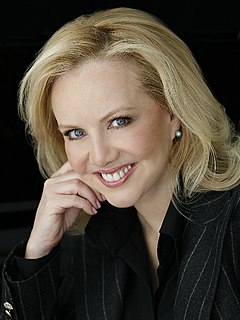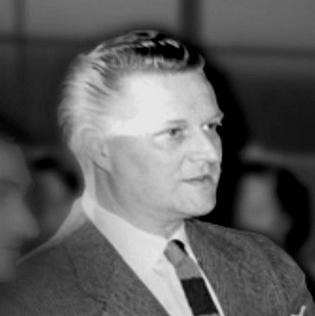Related Research Articles

Savion Glover is an American tap dancer, actor, and choreographer.

Marjorie June Taylor was an American choreographer, best known as the founder of the June Taylor Dancers, who were featured on Jackie Gleason's various television variety programs.
Dianne Walker, also known as Lady Di, is an American tap dancer. Her thirty-year career spans Broadway, television, film, and international dance concerts. Walker is the Artistic Director of TapDancin, Inc. in Boston, Massachusetts.

Susan P. Stroman is an American theatre director, choreographer, film director and performer. Her notable theater productions include The Producers, Crazy for You, Contact, and The Scottsboro Boys. She is a five-time Tony Award winner, four for Best Choreography and one as Best Director of a Musical for The Producers. In addition, she is a recipient of two Laurence Olivier Awards, five Drama Desk Awards, eight Outer Critics Circle Awards, two Lucille Lortel Awards, and the George Abbott Award for Lifetime Achievement in the American Theater. She is a 2014 inductee in the American Theater Hall of Fame in New York City.

Pearl Lang was an American dancer, choreographer and teacher renowned as an interpreter and propagator of the choreography style of Martha Graham, and also for her own longtime dance company, the Pearl Lang Dance Theater.

Ruth Page was an American ballerina and choreographer, who created innovative works on American themes.

Saroj Khan was an Indian dance choreographer in Hindi cinema. She was born in Bombay State, India. She was best known for Dance Form Mujra and the first woman choreographer in Bollywood. With a career spanning over forty years, she choreographed more than 3000 songs. She died on 3 July 2020 of a sudden cardiac arrest.
Jerry Ames was an American tap dancer centered in New York. In 1977, he co-authored The Book of Tap: Recovering America's Long Lost Dance with Jim Siegelman. In 1980, he was a featured performer in the movie Tap Dancin' by Christian Blackwood. In 2006, he received a Flo Bert Award for his lifetime contribution to tap dance.

Robert Alton was an American dancer and choreographer, a major figure in dance choreography of Broadway and Hollywood musicals from the 1930s through to the early 1950s. He is principally remembered today as the discoverer of Gene Kelly, for his collaborations with Fred Astaire, and for choreographic sequences he designed for Hollywood musicals such as The Harvey Girls (1946), Till the Clouds Roll By (1946), Show Boat (1951), and White Christmas (1954).
Kate Weare is an American choreographer. She is the founder and artistic director of the Kate Weare Company.
Claire Porter is an American choreographer/comedian known for blending comedic monologues with dance movement. She is also an award-winning performer, author, and dance educator whose dance works, which she refers to as Portables, have been produced by various dance organizations, college theater programs and venues around the world.
Randy Skinner is an American dancer, director and choreographer, primarily for the stage. He has been nominated four times for Tony Awards, three times for Drama Desk Awards, and four times for Outer Critics Circle Awards for choreography.
The Flo-Bert Award honors "outstanding figures in the field of tap dance".

Melinda Sullivan is an American dancer, choreographer and actress. She is known for her work on the U.S. version of So You Think You Can Dance, where she was a finalist in the television series' seventh season, and as the 2012 winner of the Capezio A.C.E. Award. That entry, "Gone", debuted in expanded form in New York in August 2013.

Mable Lee, sometimes spelled Mabel Lee, was an American jazz tap dancer, singer, and entertainer. Lee appeared on Broadway, at the Apollo Theater, and was known as "Queen of the Soundies" due to her numerous performances in the films.
Michelle Dorrance is an American tap dancer, performer, choreographer, teacher and director. Awarded a MacArthur "Genius Grant", she is the Founder and Artistic Director of Dorrance Dance. Dorrance is known for her creative ensemble choreography, rhythm tap style and ambitious collaborative projects with fellow tap dance choreographers and musicians. She is currently a 2017 Choreographic Fellow at New York City Center and an Artist in Residence at the American Tap Dance Foundation. Dorrance lives in Brooklyn, New York.

Loretta Agatha Abbott was an American educator, dancer, choreographer, singer, director, dance captain, and actress. She was an early member and foundation builder for the Alvin Ailey Dance Company. She was also a founding member of the Clark Center for the Performing Arts, and worked with the organization from 1959 to 1989.

Mary Overlie was an American choreographer, dancer, theater artist, professor, author, and the originator of the Six Viewpoints technique for theater and dance. The Six Viewpoints technique is both a philosophical articulation of postmodern performance and a teaching system addressing directing, choreographing, dancing, acting, improvisation, and performance analysis. The Six Viewpoints has been taught in the core curriculum of the Experimental Theater Wing within Tisch School of the Arts at New York University since its inception (1978).
Harriet "Quicksand" Browne was an American tap dancer, educator and choreographer who was best known for her innovation in sanding. Browne got a job dancing in the chorus but shortly afterwards got pregnant and had a son, which put a temporary stop to her dancing career. After the birth of her son, she resumed dancing as a soloist and as a member of the chorus in clubs around Chicago. During the 1950s, she toured with Cab Calloway's band. After she got a job in the chorus at a club in Greenwich Village, although she continued to tour, she settled in New York City.
References
- ↑ Hill, C.V. Tap Dancing America: A Cultural History. New York: Oxford University Press, 2010.
- ↑ Anderson, J. (1985, Nov 11). "DANCE: PEGGY SPINA TROUPE IN 'FASCINATING RHYTHMS'." The New York Times.
- ↑ Anderson, J. (1995, Oct 4). "DANCE REVIEW; Chatting, Drawling And Repartee." The New York Times.
- ↑ Dunning, J. (2001, Mar 13). "DANCE IN Review; Making it look easy is part of the art." The New York Times
- ↑ Egan, Bill. Flo-Bert Awards, florencemills.com
- ↑ Seibert, B. (2015, Mar 8). "Review: The Peggy Spina Tap Company at the Spina Loft in SoHo" The New York Times
- ↑ Marymount Manhattan College, Department of Dance, faculty profiles, New York, NY.